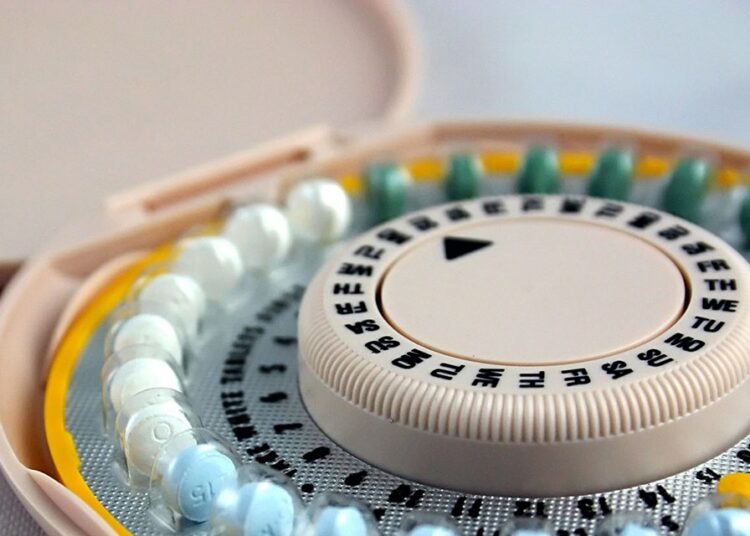[This article originally appeared in SALVO (www.salvomag.com) on Feburary 14, 2020; it is reproduced here with permission. – Ed.]
Two recent studies should make women on hormonal contraception sit up and take note.
The first, published in the journal Hormones and Behavior, was conducted by a group of Texas Christian University researchers who sought to better understand the impact of hormonal birth control on perseverance, which they believe play an important role in women’s performance on both simple and complex cognitive tasks.1 To complete the study, the researchers assigned their group of college-aged women three tasks to complete. The first was a “find the differences” test, comparing two side-by-side scenes from the movie Frozen. The second was a set of math problems from the GRE. And the third was unscrambling a series of anagrams, three of which were solvable, and three of which were not. The unsolvable anagrams were in particular meant to test women’s perseverance—how long they would continue at a difficult task.
As the researchers hypothesized, the women not on hormonal birth control (the article calls them “naturally-cycling”) performed better on all three tests, and also spent more time on all three. Perseverance was found to be a mediating factor—that is, those women who persevered longer did better, and some simple tests demonstrated that perseverance itself was largely to account for this.
Lead researcher Hannah Bradshaw explains how the experiment came to be:
“My colleagues and I first became interested in this topic after learning that women taking hormonal contraceptives don’t experience a spike in cortisol that is typically found after one encounters a stressor. While people usually talk about cortisol as a bad thing, this cortisol spike allows people to adequately meet challenges in their environment. . . . After we started looking through the literature, we also found that, compared to non-users, women taking hormonal contraceptives exhibit decrements in brain areas that play an important role in learning, attention, and memory.”2
This research is of particularly import on a college campus, where, the researchers point out, most women who take standardized tests such as the SAT, GRE, and LSAT are also at the age when they would be more likely to take hormonal contraceptives, and thus “HCs [hormonal contraceptives] could possibly make it more challenging for women to meet their higher education goals.”
Another recent study finds that women on hormonal birth control had “significantly smaller hypothalamus volume, compared to women not taking the pill.”3 (The hypothalamus is located at the base of the brain, and “helps regulate essential bodily functions including body temperature, mood, appetite, sex drive, sleep cycles and heart rate,” according to a press release on the study.) This study is the first of its kind, and the lead researcher reports that “smaller hypothalamic volume was also associated with greater anger and showed a strong correlation with depressive symptoms.” The latter shouldn’t be surprising, given a huge Danish study of a few years back finding a significantly higher incidence of depression in women taking hormonal contraception than in those not taking it, particularly in adolescent girls.4
The side effects of “The Pill” have long been known—at least partially. Side effects are a large part of the reason that the pioneers of hormonal contraception—Gregory Pincus, Margaret Sanger, Katharine McCormick, and Dr. John Rock—had to conduct their clinical trials on poor women in Puerto Rico, and on women in an asylum. (For more on this, see Jonathan Eig’s history of birth control, The Birth of the Pill.)5 Most American women simply wouldn’t put up with the side effects. Planned Parenthood lists a few of these,6 though certainly not all: decreased libido, spotting or bleeding between periods, headaches, nausea, and sore breasts. The same site also warns of “more serious” complications, then links to another page7—that completely fails to detail what these serious complications are. Instead, this page details a list of symptoms but warns that “In fact, pregnancy is more likely to cause serious health problems than the pill.” (Some serious side effects, by the way, are stroke, heart attack, and breast cancer.8)
In fact, in almost every research article that demonstrates some negative side effect of hormonal contraception, the researchers also feel compelled to issue a warning similar to that of Planned Parenthood—something along the lines of, “These possible side effects should of course be weighed against the implications of an unplanned pregnancy.” Yes, it may cause headaches, or nausea, or mood swings, or decreased cognitive activity—but it works at preventing babies! Isn’t that worth it?
The message to women is that fertility is a disease, something to be turned off until needed. Their hormones are these messy, complicated things that need extra help to behave properly.
Hormones are indeed powerful things—kind of like the body’s messengers, traveling from their origin to produce a range of necessary-to-life activities. When we interfere in that hormonal system to, say, stop a woman from ovulating, we are causing a ripple effect in a very complex system. One of these articles notes that hormonal contraceptives “are also used to treat a host of conditions, including irregular menstruation, cramps, acne, endometriosis and polycystic ovary syndrome.”9
Should we really be handing out such powerful, brain-altering drugs to teenage girls to treat acne, or irregularity? Should we really be telling girls that they need drugs to function properly? Shouldn’t we instead recognize and appreciate the female body a bit more?
NOTES:
1. Hannah K. Bradshaw, Summer Mengelkoch, and Sarah E. Hill, “Hormonal contraceptive use predicts decreased perseverance and therefore performance on some simple and challenging cognitive tasks,” Hormones and Behavior, March 2020.
2. Eric W. Dolan, “Women taking hormonal contraceptives have reduced perseverance on cognitive tasks, study finds,” PsyPost, January 23, 2020, available at https://psypost.org/2020/01/women-taking-hormonal-contraceptives-have-reduced-perseverance-on-cognitive-tasks-study-finds-55347.
3. Radiological Society of North America, Press Release, “Study finds key brain region smaller in birth control pill users,” December 4, 2019, available at https://sciencedaily.com/releases/2019/12/191204090819.htm.
4. Charlotte Wessel Skovlund et al., “Association of Hormonal Contraception With Depression,” JAMA Psychiatry 73.11 (2016): 1154-1162, available at https://jamanetwork.com/journals/jamapsychiatry/fullarticle/2552796.
5. Jonathan Eig, The Birth of the Pill: How Four Crusaders Reinvented Sex and Launched a Revolution (New York: Norton, 2014).
6. Planned Parenthood, “What Are the Disadvantages of the Pill?” available at https://plannedparenthood.org/learn/birth-control/birth-control-pill/what-are-the-disadvantages-of-the-pill, accessed February 13, 2020.
7. Planned Parenthood, “How Safe Is The Birth Control Pill?” available at https://plannedparenthood.org/learn/birth-control/birth-control-pill/how-safe-is-the-birth-control-pill, accessed February 13, 2020.
8. Bradshaw et al., “Hormonal Contraceptive Use Predicts Decreased Perseverance.”
9. Radiological Society of North America, “Study finds key brain region smaller in birth control pill users.”




















Discussion about this post